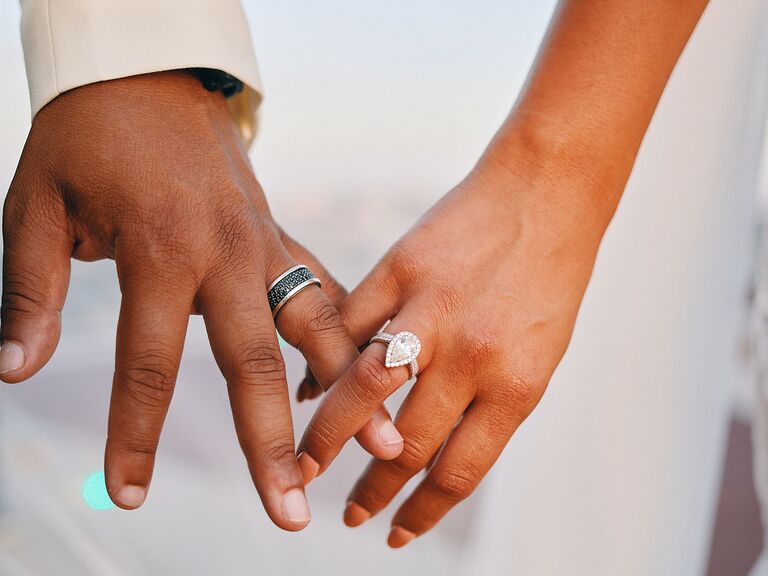“Fast fashion” has been filling landfills globally for years, but only recently has the term and its connotations begun to enter Americans’ vocabulary. According to CBS News MoneyWatch, the apparel and footwear industries together account for more than 8% of global climate impact — more than airline flights and maritime shipping trips combined. Tanjuria Willis is the owner of eKlozet Luxury Consignment and creator of Sustainable Fashion Week Atlanta, whose first annual celebration begins this week. She joined “City Lights” host Lois Reitzes via Zoom to introduce the new 3-day event series that will bring yearly attention to the crucial issue of fashion’s impact on the environment with fun, flair, and sustainable style.
Interview highlights:
On the hidden cost of “fast fashion”:
“Fast fashion was invented about 20 years ago or so … Your places like Zara, and H&M, and Forever 21 are all considered fast fashion brands, and what they did was they basically replicated what was coming down the runways, the fashion runways, and they mass-produced it very cheaply using cheap labor and manufacturing plants with really quick turnaround so that they could get them onto their floors and offer to consumers at a very fast pace,” said Willis. “So they’re typically made in toxic environments, in environments where there are not necessarily fair labor practices. Because they’re so cheaply made, people tend to discard them … You’re going to be apt to throw that dress away when you’re done with it and get a new one because you’re going to feel like it’s so cheap — there’s nothing you can do with it.”
“Sustainable fashion is fashion and clothing that helps to keep our landfills clean. We’re geared towards keeping the environment intact and really guide it towards zero emissions,” said Willis. “What it really is, are clothing that uses fabrics that are potentially biodegradable, or they don’t add toxic chemicals to the environment or the landfills. They’re quality clothing that, really, we extend the life cycle on by keeping them in circulation, i.e., consignment stores and your stores where you re-use materials to do new things with … In addition to what we’re doing to the landfills and the chemical dyes that are going into the waters, we also have to think about the energy use that it takes to make these things, as well.”
How Willis became a committed advocate for sustainable clothing:
“I have a degree in electrical engineering. I started my career working in a nuclear facility as a plant systems engineer, and as I evolved, I’ve always been a lover of fashion and clothing, because I’ve always felt that clothing helps people to be successful,” said Willis. “I say that my mantra is ‘Clothing is energy, energy is confidence, confidence is productivity, and productivity leads to success.’”
“That’s exactly why I created Sustainable Fashion Week Atlanta, because I felt like there had to be a way to show people that we could live sustainably, we could dress sustainably, in a fashionable and stylish way, just like we always have, and they also provide that education for them — to help them to understand the effects that the clothing that they are typically used to buying … has on their day-to-day lives, how the chemicals affect the air, how that’s affecting what we’re seeing now in our hurricanes, and our tropical weather … the melting of the glaciers, all of these things are indirect results of what we are doing to the environment,” said Willis.
Runway shows, panel discussions, and the philosophy of Sustainable Fashion Week:
“When I created the event, I really wanted to present high fashion in sustainable clothing, because I think people have this perception of what sustainable clothing means, and they think of it as only being this bohemian look, or the burlap sack, or something that’s not attractive at all,” said Willis. “So part of my goal was to present higher-end clothing or just stylish-looking clothing for people to see there are alternatives to what you buy now, and you won’t have to change your aesthetic.”
“We’ve also incorporated panel discussions that will talk about everything from busting the fast fashion gap to our circular economy — meaning what companies are doing now to invest more in sustainable practices … We have the United Kingdom doing a panel about the effects of sustainability in the United Kingdom, we have someone from the German Fashion Council talking about why are we buying the clothes that we are buying and what we’re doing to the environment, as well as another young lady from the African Fashion Guide,” said Willis. “We’ll have also live entertainment, and we’ll have some shopping boutiques in places where people can get demonstrations on weaving and how to do things simply, turn things that you have, and use those t-shirts that you are going to throw away.”
“We are hoping to create, as well, a recycling program for clothing and textiles where we can take clothing and have them issued back to be re-used as new designs or reduced to something that we can use. We know that polyester is really plastic, and so maybe it can be used for furniture,” Willis added.





More Stories
5 Mistakes to Avoid When Buying Kids’ Clothes Online
Buying Designer Indian Clothes Online for an Indian Bride
Swap Second Hand Clothing and Accessories and Revitalize Your Wardrobe